 Polymyalgia rheumatica is an inflammatory disorder that causes muscle pain and stiffness, especially in the shoulders. Signs and symptoms of polymyalgia rheumatica usually begin quickly and are worse in the morning. Most people who develop polymyalgia rheumatica are older than 65. These conditions may be aggravated or suppressed by certain foods. Making the right food choices can help you reduce joint pain and curb serious medication-related side effects such as osteoporosis.
Polymyalgia rheumatica is an inflammatory disorder that causes muscle pain and stiffness, especially in the shoulders. Signs and symptoms of polymyalgia rheumatica usually begin quickly and are worse in the morning. Most people who develop polymyalgia rheumatica are older than 65. These conditions may be aggravated or suppressed by certain foods. Making the right food choices can help you reduce joint pain and curb serious medication-related side effects such as osteoporosis.
A Few Diet and Supplement Considerations for PMR
- Anti-inflammatory Foods – Doctors are learning that one of the best ways to reduce inflammation lies not in the medicine cabinet, but in the refrigerator. By following an anti-inflammatory diet you can fight off inflammation for good. anti-inflammatory foods contain certain chemical compounds that are known to reduce joint inflammation and pain. Foods with anti-inflammatory properties include nuts, fruits, leafy greens, cold-water fish, tofu, whole grains, and green tea. The Mediterranean diet and the DASH diet are two examples of diets that encourage consuming several anti-inflammatory foods.
- Omega−3 Fatty Acids – Omega−3 fatty acids are polyunsaturated fatty acids characterized by the presence of a double bond three atoms away from the terminal methyl group in their chemical structure. Omega-3 fatty acids are essential nutrients that are important in preventing and managing heart disease. Findings show omega-3 fatty acids may help lower blood pressure. They can help reverse immune system responses to inflammation and protect against a recurrence of PMR. You can obtain these healthy fats from fish, walnuts, flax seeds, chia seeds, and leafy greens.
- Calcium and Vitamin D – When you are on steroid treatment for PMR, you are at an increased risk of osteoporosis, fractures and bone damage. Food is the best source of calcium. Dairy products, such as milk, yogurt, and cheese are high in calcium. Certain green vegetables and other foods contain calcium in smaller amounts. Some juices, breakfast foods, soymilk, cereals, snacks, bread, and bottled water have added calcium. If you drink soymilk or another liquid that is fortified with calcium, be sure to shake the container well as calcium can settle to the bottom. Vitamin D can be obtained from tuna, egg yolk, salmon, beef liver, non-dairy milk, and direct exposure to sunlight (preferably at noon). Alternatively, you can also take calcium and vitamin D supplements.
- Other Food & Supplements – Other foods, such as curcumin (turmeric) and devil’s claw, or supplements of methyl-sulfonyl-methane, Boswellia (frankincense), and willow bark have shown pain-relieving properties in arthritis and fibromyalgia conditions with joint pains similar to PMR. Although there is no direct evidence of the effects of these foods and supplements on PMR, they may be worth a try.
Limit Fried, Processed, Sugar Filled Foods
Cut down on the amount of fried and processed foods you eat, such as fried meats and prepared frozen meals. Include more vegetables and fruits in your diet. High amounts of sugar in your diet result in an increase in AGEs, which can cause inflammation. Cut out candies, processed foods, white flour baked goods, and sodas to reduce your arthritis pain. Avoid buying foods that contain refined sugar, corn syrup, refined flour, and or corn oil.
When you decide to follow a healthy diet, it is important to abstain from foods that may promote inflammation. Researchers at the Mount Sinai School of Medicine examined disease prevention through diet. In their study, they found that decreasing the amount of fried and processed foods eaten can “reduce inflammation and actually help restore the body’s natural defenses.”
For persistent joint pain that is interfering with your daily activities, see a Tristate rheumatologist to make the correct diagnosis and begin the proper treatment.
Contact Us (859-331-3100) For More Information to Request an Appointment
—
 About Tristate Arthritis and Rheumatology
About Tristate Arthritis and Rheumatology
Tristate Arthritis and Rheumatology is first and largest Rheumatology practice in the Northern Kentucky area. Founded by Dr. Arthur Kunath in 1986, our rheumatology practice now consists of six doctors who are board certified in both Internal Medicine and Rheumatology and a Physician Assistant. Patients see one doctor (except in emergencies), thereby assuring continuity of care and an individualized doctor-patient atmosphere giving the physician the ability to establish personalized and detailed relationships. Our doctors have received numerous awards, including being listed as “Top Doctors” in Cincinnati Magazine, receiving the Patient’s Choice Award, the Most Compassionate Doctor Award, and the American College of Rheumatology’s “My Doc Rocks” award.
>> Learn More


